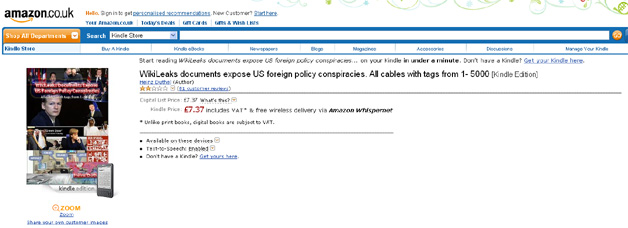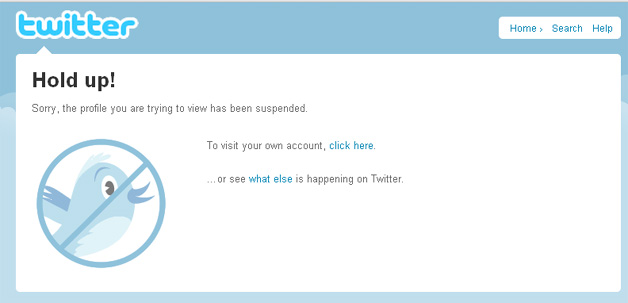Frontline on PBS is airing a program tonight called WikiSecrets, which explores the events surrounding the WikiLeaks publishing of over half a million classified documents, in what is commonly known as the largest intelligence breach in U.S. history. Ahead of the program, Frontine has posted an edited, yet substantial version of Bradley Manning’s Facebook Wall. Manning, if of course the Army intelligence analyst who has been charged with leaking the documents.
The Wall is a pretty interesting read.
Exclusive: FRONTLINE uncovers video of alleged Wikileaker Bradley Manning mingling with hackers around the time of the war logs leak. Watch “WikiSecrets” tomorrow at 9pm ET on @PBS.
The postings start on July 22, when he says, “Just created a new facebook.” The early posts are your pretty much your basic, mundane status updates. Things like: “playing EVE online,” “working at Starbucks,” “taking a nap,” “sleeping,” “at home,” “working at Abercrobmie & Fitch,” “ready to scream!,” travelling to Chicago for Lollapalooza,” etc.
Finally, on November 5, his first mention of the military makes its appearance: “is still in the Army, but suspended with injuries from Basic Training.” Shortly after that, came:
“Sorry about not being in contact with anyone. Anyway, I got pulled from my Basic Training at Ford Leonard Wood. I’m not sure what my status in the Army is right now, but I’m currently being treated by the hospital’s neurology departmentt for some kind of nerve injury causing my left arm to go weak and almost completely numb.
Also, i’m suffering from dropfoot, meaning my left foot is numb, and unable to walk correctly without a limp.
Anyway, I’m hanging in here, and as far as I know I’m not yet going to be discharged from the Army, and may be recycled for training by January!
Peace out everyone
On April 4, He posted, “hey, i finally graduated basic training everybuddiez…i’ve now moved on to Fort Huachuca in AZ. Hit me up on thephonezors if you can!”. Frontline says this is when he’s sent to receive intelligence training, which when completed, gave him security clearance that gave him access to top-secret databases. They point to a Wired article, indicating Manning was reprimanded for revealing sensitive info on YouTube while he was at Fort Huachuca.
On June 28, Manning posted the following Bob Barr presidential campaign video:
Late in 2008, after completing intelligence training and getting into fights and getting reprimanded again (for throwing chairs and yelling at soldiers), he posted various Prop 8 protest material and continued throughout 2009 to discuss political issues and gay rights fairly frequently.
On October 23, 2009, he wrote, “is getting a little tired of pinging major ISPs at 750 m/sec. Hopefully Iraq qill have faster Internet.” He had previously posted that he was in Kuwait. On October 29, he arrived In Iraq. On October 31, he wrote, “is in his new room. with his high speed Internet”.
On November 4: “feels betrayed…again.” On November 24, he posted photos from the “official promotion ceremony from Private First Class to Specialist”. “it’s no biggie,” he commented. “when i get sergeant it will be a much bigger deal.”
January 13 2010: “feels so alone.”
On January 21, Manning headed back to the U.S. for a couple weeks, at which time he attened the BUILDS event, where he is believed to have given up the infamous war logs.
The postings go on up until June 5. Frontline does an excellent job of adding a timeline alongside the postings, highlighting relevant events . The whole wall (though edited) can be viewed here.
The page will be explored in the film WikiSecrets, airing tonight on PBS.



 Who is Anonymous
Who is Anonymous 


 "Internet advocates love to say that information likes to be free," wrote Mashable’s Samuel Axon recently when he compiled a
"Internet advocates love to say that information likes to be free," wrote Mashable’s Samuel Axon recently when he compiled a